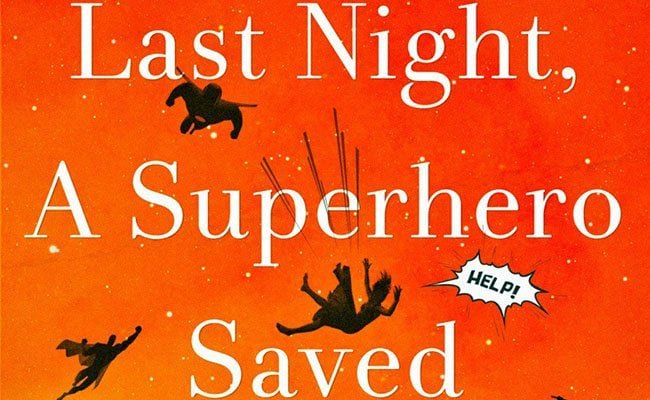
Superheroes leave their marks on us at an early age. Nostalgically speaking, one might say that comic fandom is born in the childhood bedroom, in a tree-house hideaway, or in a cubby under the stairs, where crisp new comics are read and reread until their covers fall off, the dialogue is committed to memory, and the images — in red, blue, and yellow — are forever burned into the brain. Because our own personal secret origins take place in this most tender time, this time of fathomless fear and boundless hope, we fans hold these heroes dear. They shaped us in ways we may never fully understand. This is frustratingly sad, I’m sure, to those who see in comics nothing more than empty entertainment produced by faceless corporations. But for those of us with eyes to see, there is so much more: not the influence of corporate shills but of individual artists with visions to share, not ridiculous fantasies with no roots in reality but myths and metaphors that touch us deeply.
Liesa Mignogna’s Last Night, a Superhero Saved My Life is an exploration of the ways superheroes shape us and yes, save us, not only in those early years but throughout our lives. The book is divided into six big categories within which talented writers tell us what superheroes mean to them. They tell us how superheroes, from Batman to Underdog, have saved their lives. Along the way we learn about what superheroes have to say about the human condition, we learn about superheroes and love, superheroes and the art of writing, superheroes and gender, superheroes and childhood, and superheroes and the trauma that is often at the very heart of life, both in childhood and the adult world.
Austin Grossman, author of the 2007 superhero novel, Soon I Will Be Invincible, kicks things off with an essay about the human condition that goes right to the heart of the matter by celebrating the influence of Batman on his life, particularly the Batman of Alan Moore’s dark and gritty The Dark Knight Returns, the story of a middle-aged hero who finds that his fight for justice will never end, that he will never reach the goal that he has for so long battled. Nearing middle age himself, Grossman finds something profound about Batman and his never ending battle, about how Bruce Wayne “took what had happened to him, packaged it up, and turned it into a lifestyle.”
Novelist Jamie Ford’s focus is on what superheroes have taught him about love. He also finds the ultimate source in the work of writer Frank Miller, particularly his run on Marvel Comic’s Daredevil series. Ford finds parallels between his own doomed love affair and the romance of Daredevil and Elektra. Like Elektra, for whom even death could not keep her away, Ford’s Allison kept on returning to his life.
Scott Westerfield delivers a brief but mesmerizing look at his love affair with Manhattan, which began on his first visit at the age of 12. Raised in a California suburb, Westerfield never imagined that the Manhattan that he knew from Marvel’s Spider-Man comics might actually be a real place, a place with buildings that touched the sky and crowded the streets and with flagpoles and gargoyles galore, a place where Spider-Man could swing by his web and run up walls. As an adult, he finds that he feels most at home about six stories up, at the level of flight. “Not boring, too-high Superman flight, of course. Spider-Man flight — that stickier, more complicated traversal of the details and geometries of the city, as messy as Peter Parker’s finances or his personal life.”
Perhaps the most compelling articles in this fine collection are examinations of Wonder Woman, who is celebrating her 75th anniversary this year. In “All the World Is Waiting for You”, Carrie Vaughan writes about what Wonder Woman has taught her and focuses, especially, on Lynda Carter’s TV Wonder Woman from the ’70s. She writes, “the whole generation of us authors who made up the wave of post- Buffy urban fantasy … were able to write our heroines because we grew up with Lynda Carter’s Wonder Woman. We took for granted that a woman could fight while wearing awesome clothes and smiling charmingly.”
Leigh Bardugo likewise pursues the Wonder Woman theme in what may very well be the best essay in the volume, “We Are Not Amazons”. Bardugo considers the importance of Wonder Woman’s brightly colored and completely impractical costume and writes about her own lifelong, and ambivalent, relationship with the physical appearance of this character. “When women dress,” she writes, “we walk the same line Wonder Woman has always walked, negotiating the same territory of the professional and the provocative. We are at once trying to honor the desire to choose our attire based on our own wants while still understanding the way our clothing is coded for those who observe us.”
Last Night, a Superhero Saved My Life is a fine collection of essays, all of which manage to consider the importance of superheroes from both the personal and the political point-of-view. It’s recommended reading for all those who, as children or adults, have had their lives saved just in the nick of time, who have been transformed into their better selves by Amazons, Caped Crusaders, and Mutants.


![Call for Papers: All Things Reconsidered [MUSIC] May-August 2024](https://www.popmatters.com/wp-content/uploads/2024/04/all-things-reconsidered-call-music-may-2024-720x380.jpg)



